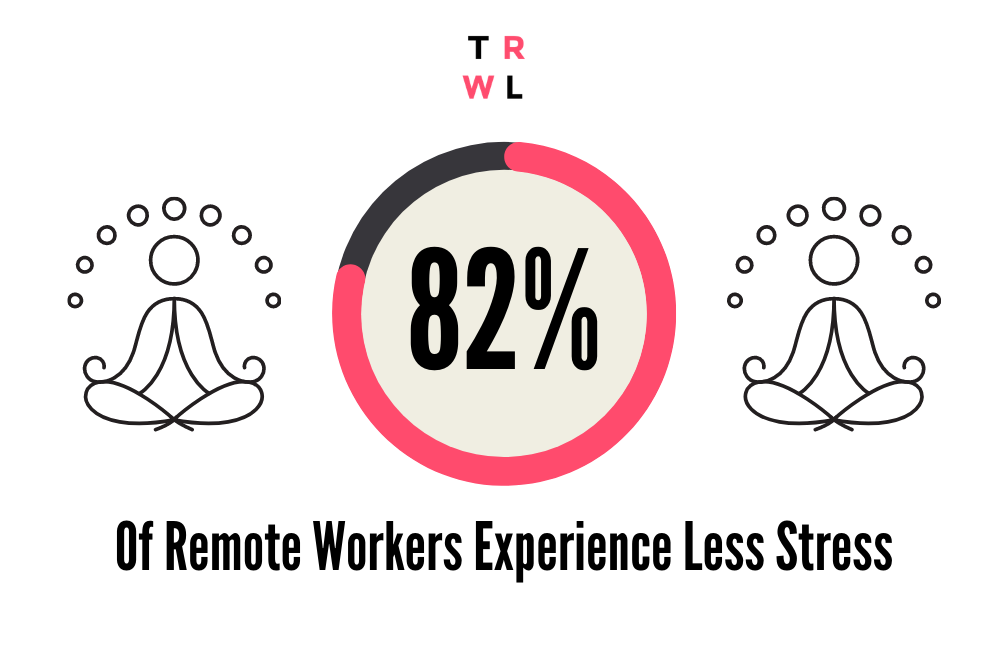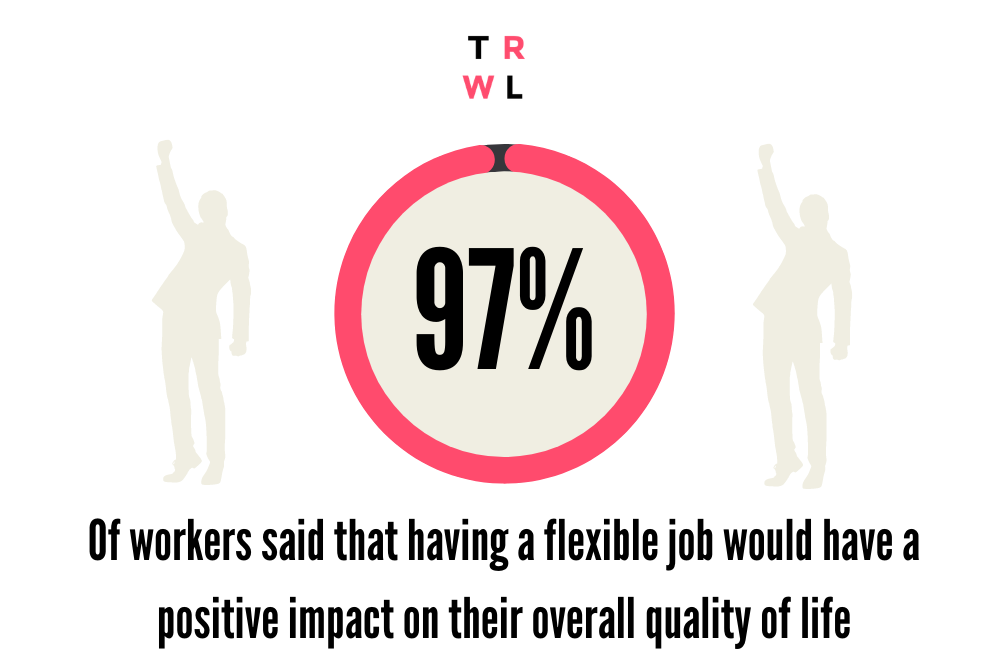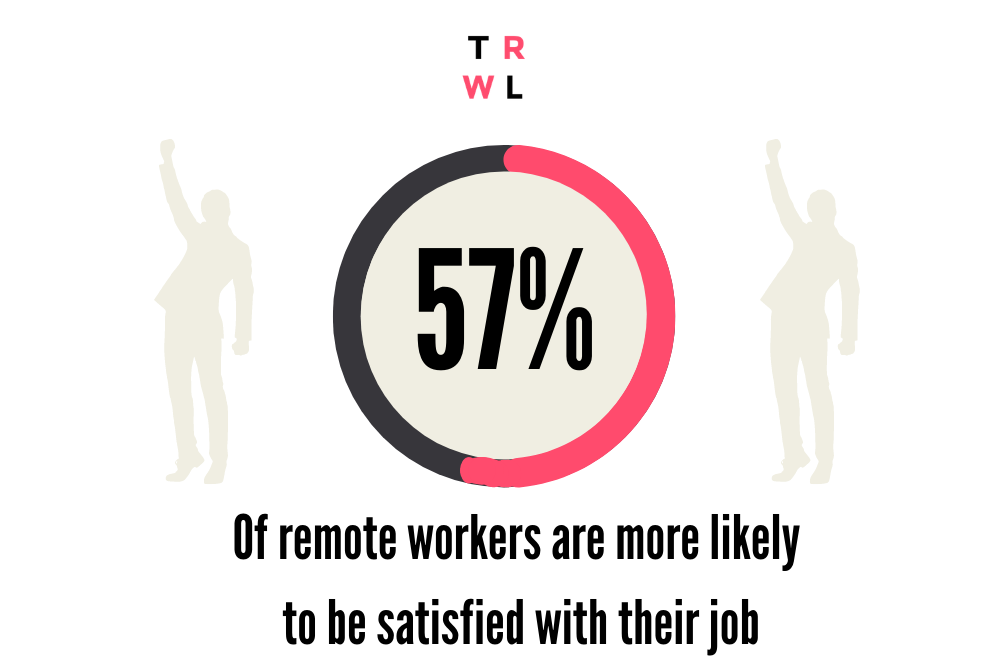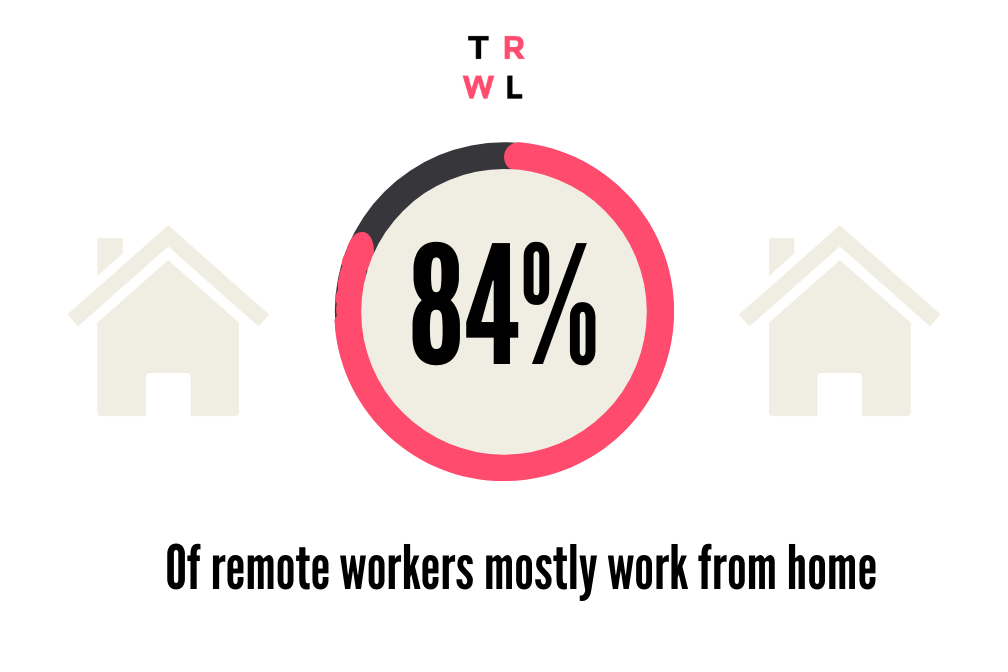7 Remote Work Statistics That You Should Know
Co-working spaces are popping up in big cities around the world, and cafes with Wi-Fi can lure in remote workers who are looking for a change of scenery and a good cup of coffee.
According to the Flexjobs annual survey people even consider flexible working to have become the new normal. Many new job seekers no longer see it as just a perk but as a must.
The biggest change happened this year, and it happened overnight when the COVID-19 pandemic forced people all around the world to stay indoors and, therefore, work-from-home became more popular than ever.
The thing about remote work is: you either like it, or you don’t. But these statistics can tell you more about the experiences of remote workers and how this work style affected their productivity, health, and more. Besides, we also want to show you interesting statistics about remote work and the environment, the future of remote work, and more.

Image source: Woman photo created by pressfoto – www.freepik.com
Let’s take a look at the statistics!
1. Remote workers are less stressed

Source: 2014 survey of PGI
Some people would say that a little stress isn’t bad, that it can help you keep focused on your work. A lot of stress, however, can lead to burnouts.
According to the 2014 survey of PGI, 82% of the people experienced lower stress levels working from home than when having to commute to an office.
A study in 2016 by Phyllis Moen and Erin L. Kelly (the University of Minnesota and MIT) reported that the test group of employees who worked with a flexible schedule and remotely, reported “higher levels of job satisfaction and reduced levels of burnout and psychological stress” than the tested non-remote employees.
2. Remote work can improve your work-life balance

Source: Flexjobs annual survey, 2018
Working remotely can improve your work-life balance significantly. not having to commute and a flexible schedule can help workers to spend more time with their families, enjoy their hobbies, and reduce the stress and burnout mentioned above.
According to the Flexjobs annual survey in 2018, 97% of the 3000 respondents said that a flexible job would have a “huge improvement or positive impact on their overall quality of life”.
3. Remote workers are more engaged
Gallup’s research found that remote workers (32%) are more engaged than office workers (27%). According to Gallup “optimal engagement … occurs when employees spend 60 percent to 80 percent of their time working off-site — or three to four days in a five-day workweek.”
4. Remote workers enjoy their jobs

Source: Amerisleep
Employees consider their remote work option more than just a perk. Owl Labs stats show that 55% of remote workers would look for another job if they were no longer allowed to work remotely, and 61% of them would expect a pay raise if this kind of change would happen.
Amerisleep’s study found that remote workers are 57% more likely than the average American to be satisfied with their job.
5. Remote workers are more productive
Some people may worry that they would end up not working when they’re not forced to sit at their office desk all day. However, statistics show quite the opposite.
The Global Workplace Analytics Costs & Benefits survey shows that remote workers are between 35-40% more productive than office workers. The Flexjobs annual survey supported this and found that 65% of respondents are more productive in the environment of their own homes.
So, why is it that remote workers are more productive? Respondents stated that this is mainly because of fewer distractions and interruptions compared to at the office. No commuting stress, minimal office politics, and being in a more quiet and personalized space also helps.
6. Not all remote workers are digital nomads

Source: 2019 State of Remote Work-study from Buffer
A week in Thailand, a week in France, and next up, maybe Peru? One of the benefits of remote work is the ability to travel, but do people embrace the digital nomad life? Surveys show that this is usually not the case.
According to the 2019 State of Remote Work-study from Buffer, 84% of respondents reported that they’re mostly working from home because it’s the most convenient.
7. Remote work is environmentally friendly
For years we’ve been trying to fight environmental changes. One of the biggest issues are the vehicles we use, that create carbon emissions. People have thought of several ideas to reduce our greenhouse gas emissions, such as carpooling or hopping on the train or bus to work instead. What if remote work is what we really needed?
According to the 2017 State of Telecommuting in the U.S. Employee workforce report: “Existing telecommuters reduce greenhouse gas emissions by the equivalent of taking over 600,000 cars off the road for a year. If the work-at-home workforce expanded to include those who could and wanted to telecommute half of the time, the GHG savings would equate to taking 10 million cars off the road.”
8. Remote work is here to stay
The future is looking good for people who enjoy working from home or are still looking for a remote job.
According to LinkedIn’s Global Talent Trends Report for 2019, 72% of talent professionals agree that work flexibility will be very important for the future of HR and recruiting. In addition, Upwork’s “Future Workforce report” predicts that 73% of all teams will have remote workers by 2028.
And now in 2020 when we all realized even more than ever that we need at least the ability to perform most jobs from home, we can say that remote work is here to stay, and is not just a temporary trend in the job market.

Image source: Technology photo created by master1305 – www.freepik.com
Do you prefer working remotely or do you like going to the office? What are your pros and cons of each working style?
We would love to hear your opinions!
Are you struggling to stay fit while working from home? Whether you’re new to teleworking or a remote work veteran, these tips may come in handy for you!
Sources:
- MIT Sloan School of Management
- Miro
- Business 2 Community
- Flexjobs
- Remote Year
- PGI
- Gallup
- Amerisleep
- Buffer
The post originally written by Jocelyn ter Morsche – Marketing
Joined remote company Xoxzo in August 2020. Majored in Japan Studies at Leiden University in the Netherlands and previously worked as a social media marketer in Tokyo. Describes her marketing approach as data-driven, yet creative.
